Working towards a more inclusive society: Five stories of how the UN is working with partners to advance disability inclusion
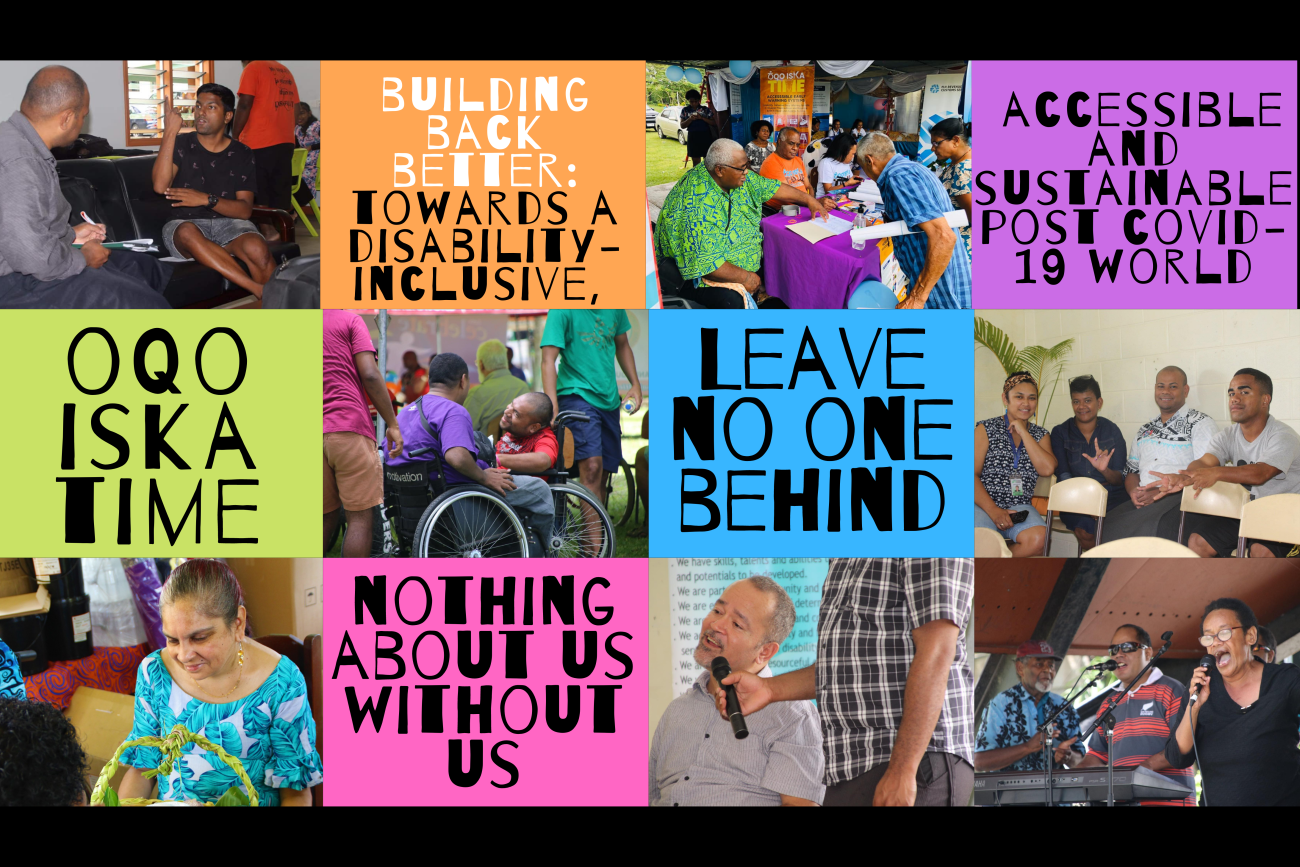
In light of the recent Global Disability Summit, where world leaders came together to agree and commit to what needs to be done to ensure the rights of persons with disabilities are realized, let us take a moment to reflect on the contributions UN country teams and partners are making in advancing disability inclusion towards achievement of the 2030 Agenda for Sustainable Development, through the lens of five stories.
Fostering inclusion in Partnership with Organizations of Persons with Disabilities in the Pacific
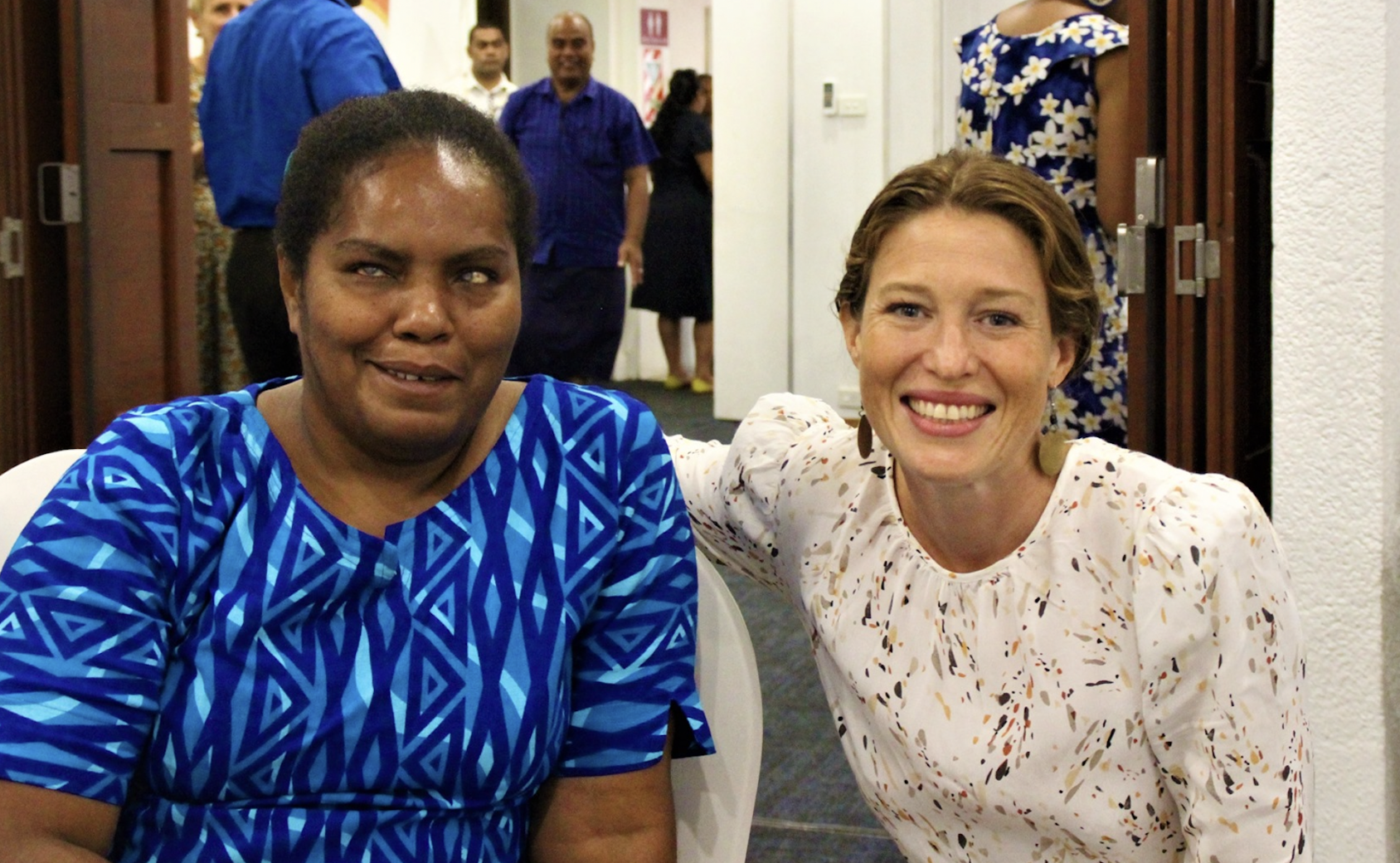
No one knows what persons with disabilities need better than themselves. That is exactly why the United Nations in Fiji partners with the Pacific Disability Forum, an umbrella organization representing persons with disabilities. Together they take actions to ensure decision makers have the knowledge and skills to make Fiji more inclusive and accessible, work better together, and put measures in place to make sure no one is left behind when new policies are developed and implemented. It is also the first time 16 UN entities, the Pacific Disability Forum, and National Organizations of Persons with Disabilities (OPDs) have come together and agreed on what needs to get done. For example, they are working closely together to review and make plans on how to improve accessibility for persons with disabilities in all UN premises across Fiji, Vanuatu, Solomon Islands, Tonga and Tuvalu.
There is no doubt the partnership has made progress on disability inclusion. Sanaka Samarasinha, the top official of the UN in Fiji said, “At the outset of implementing the UN Disability Inclusion Strategy, we faced a stark realization that the UN in the Pacific was truly inaccessible to persons with disabilities. Holding ourselves accountable and opening the door to the critique from our partners in National OPDs was the only solution. I am proud to say that 2 years on, our commitment to inclusion has become one that exemplifies the UN team here in Fiji – and our partnership with Pacific Disability Forum is strong and leading to concrete changes for persons with disabilities.”
Amplifying the Perspectives of Persons with Disabilities through Communications in Indonesia
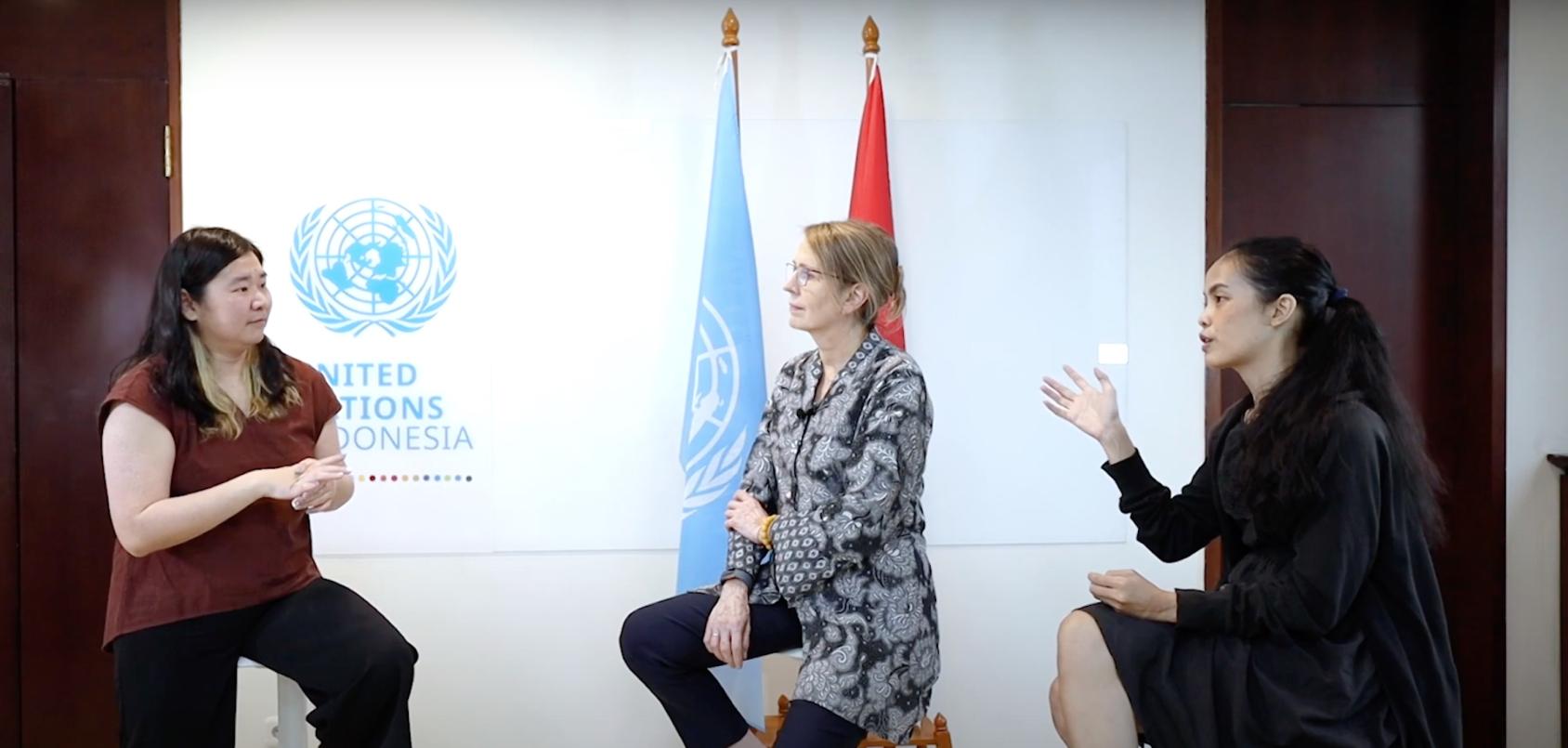
In Indonesia, the UN wanted to popularize sign language and help break down barriers to communication for people with hearing impairments, so the UN partnered with two organizations for persons with disabilities to devise an original communications campaign and social media competition called "Show Your Sign".
Inspired by the South Korean Pop Group BTS' song “Permission to Dance” performed at the 76th Session of the UN General Assembly, "Show Your Sign" called on participants to submit Instagram Reels (videos) showing off sign-language choreography to one of ten pre-selected songs. The competition attracted more than 70 entries from sign-language users across Indonesia and used a bespoke Instagram filter that generated more than 267,000 social media impressions, mostly via Pusbisindo—a local sign-language school that partnered with the UN for the campaign.
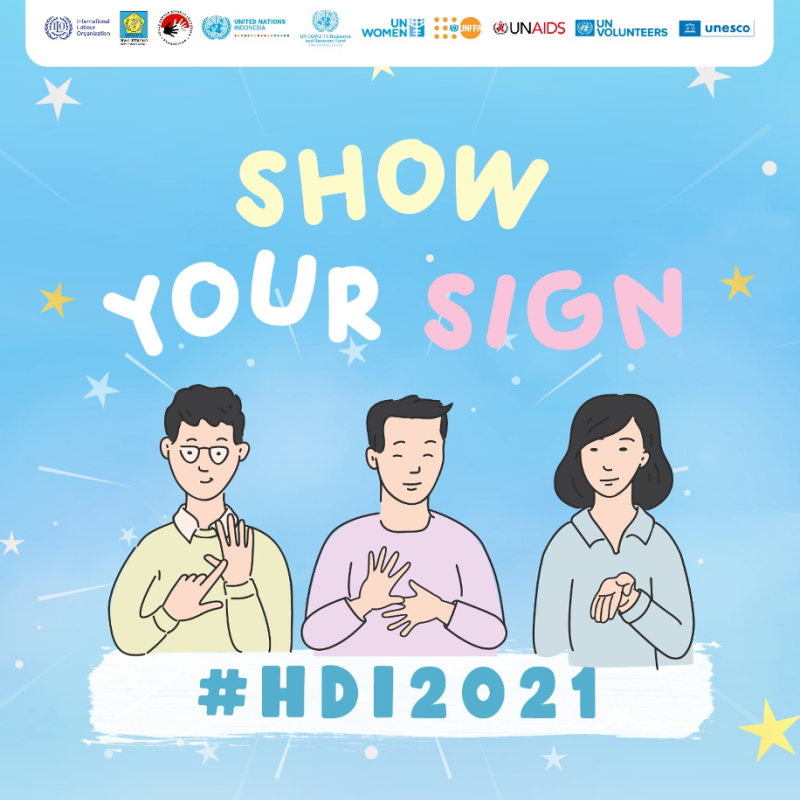
“We were very pleased with the interest in learning and using sign language among people across Indonesia for this campaign," said UN Resident Coordinator Valerie Julliand. "We believe it raised awareness about Indonesian sign language being an official language and hopefully some people will be interested in starting to learn it so they can communicate with more people that use it in the country.”
Working with Governments to make Disability Inclusion a Priority in Bolivia
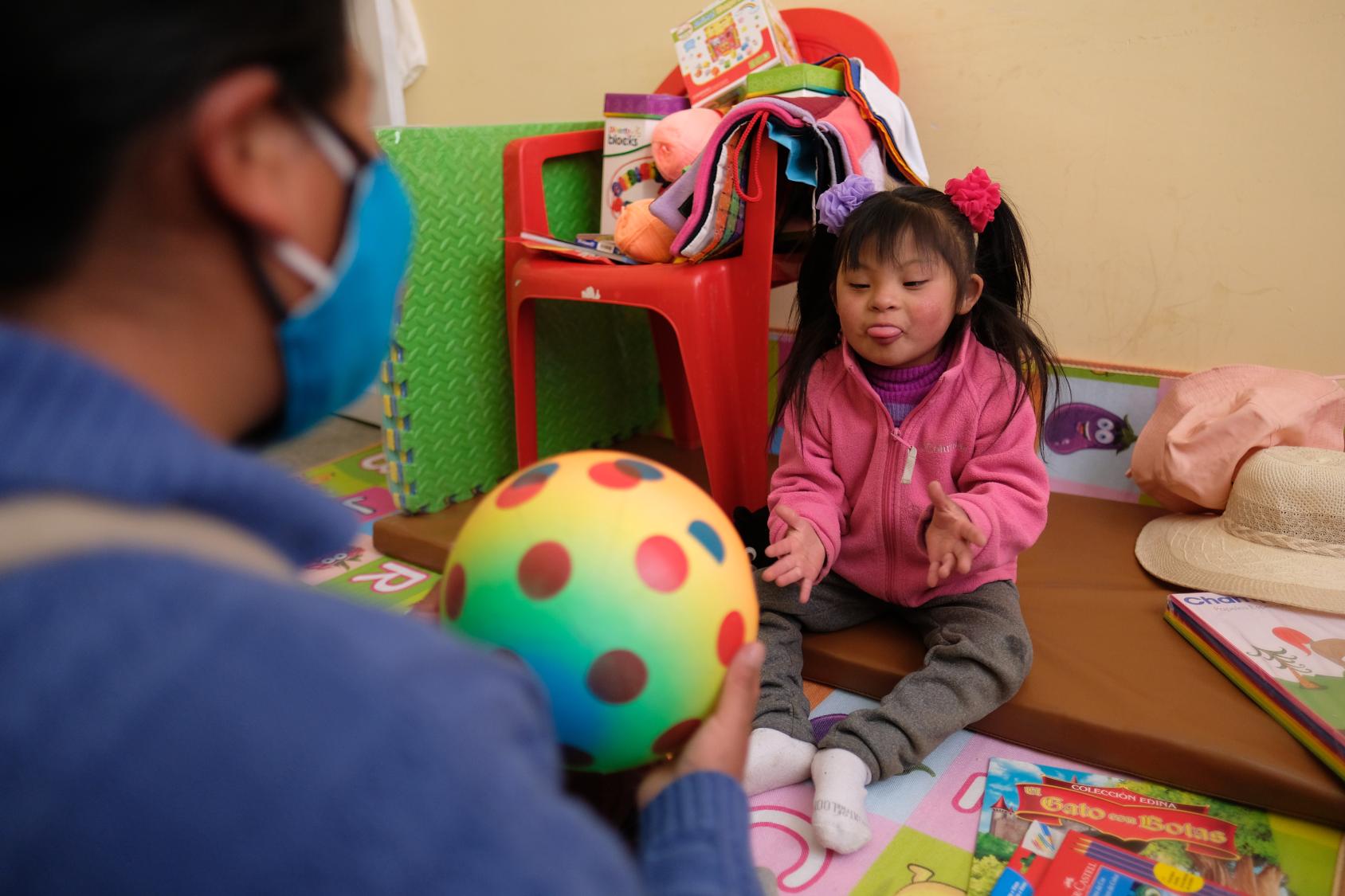
While laws are important, the UN System is committed to providing Government partners with evidence-based data to guide policies and turn them into action that will see real change for persons with disabilities in their everyday lives.
This was the case in Bolivia where five United Nations Agencies (UNFPA, UNICEF, OHCHR, WHO, UNESCO) came together to make sure the Government had access to more and better information to deliver inclusive programmes, particularly for children, adolescents and women around access to health, justice and education. As a result, an Epidemiological Profile of Disability and early identification tool for children between 0 and 6 years were developed; quantitative variables and indicators were included in the Education National System as well in the National System for Registration of gender-based violence; a Protocol of access to due process was developed; and guides for sexual and reproductive health care mainstreamed disability.
“While Bolivia has adopted laws confirming the rights of persons with disabilities, it was important for the UN System to find ways to collaborate with Government partners and ensure they have better tools and understanding of how to establish and deliver policies that meet the commitments and lead to concrete change for persons with disabilities.”
Placing Disability Inclusion at the Core of Planning in Sierra Leone
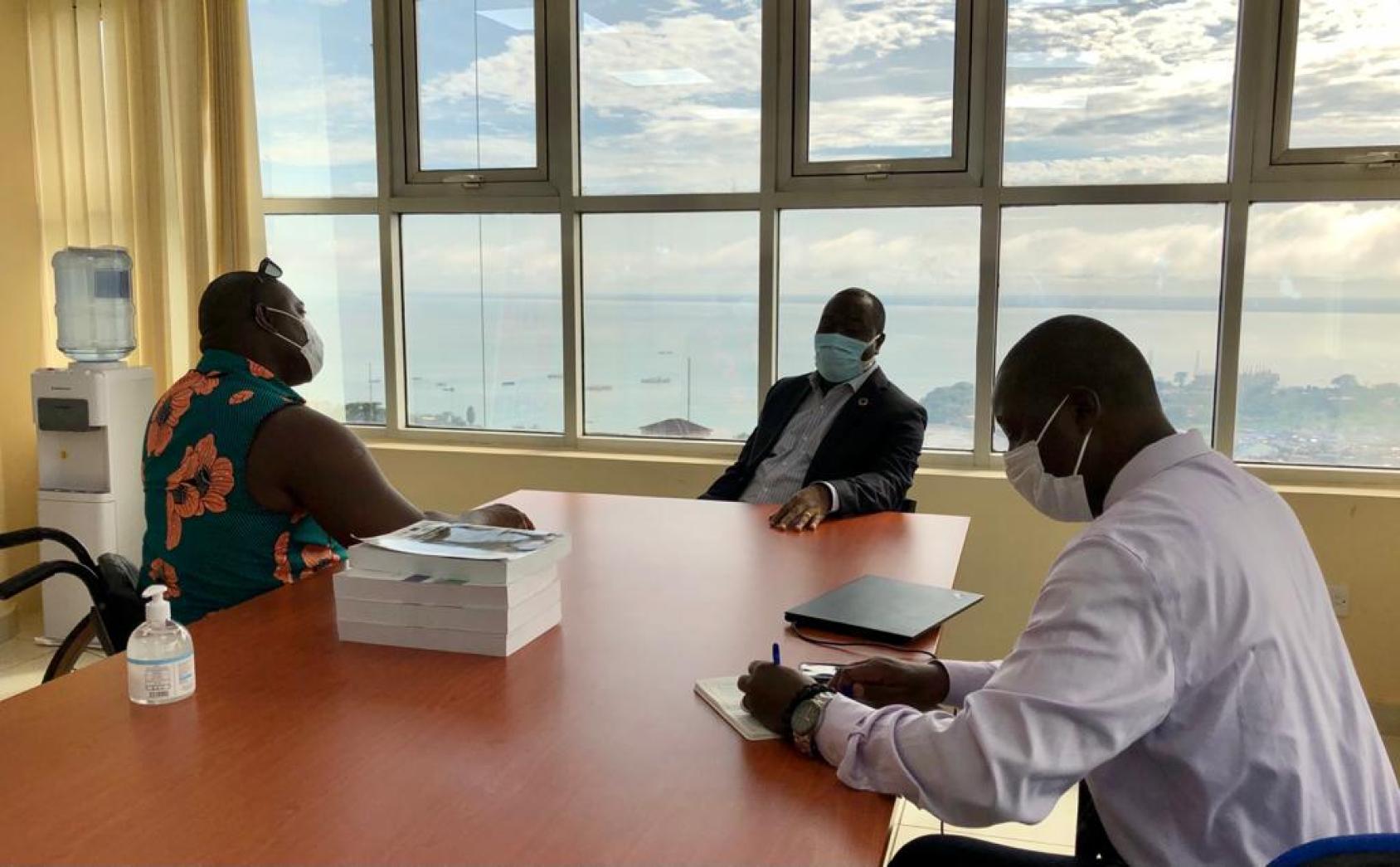
Advancing disability inclusion starts with having a good plan. This is the case in Sierra Leone, where the UN and Government partners came together to ensure the rights of persons with disabilities were mainstreamed across the UN Sustainable Development Cooperation Framework (2020-2023), the national plan that outlines what the UN System and the Government of Sierra Leone will do together to achieve the 2030 Agenda for Sustainable Development.
The plan specifies a variety of actions that will be taken to ensure boys, girls, women and men with disabilities will be empowered and benefit from increased social protection services, economic and social opportunities. It goes further to make sure persons with disabilities are benefiting across all sectors, like health, education, access to justice, protection, climate sustainability, and was developed in consultation with persons with disabilities and their representative organizations.
“From the outset we put the rights of persons with disabilities at the center of our planning and are proud of the partnership that brought this plan to life,“ said UN Resident Coordinator Babatunde Ahonsi.
Striving for Disability Inclusion through Social Protection in Lebanon
With the support of the UN Joint SDG Fund, the UN, with ILO and UNICEF in the lead, came together to support the Government of Lebanon in developing an integrated and inclusive national social protection system that promotes access for people with disabilities and creates opportunities for their participation. Through the process, organizations of persons with disabilities collectively outlined what is best for them, including the formation of a new Disability Allowance.
“Through this process the UN has learned the great value of engaging with the disability movement, enhancing representation and ensuring all pillars of a social protection system are reviewed through a disability inclusion lens. Social assistance is an enabler for full and equal participation of persons with disabilities in social and economic life, while ultimately it is inclusion in the labour market that will lead to the full and equal participation of persons with disabilities in social and economic life,” stated Najat Rochdi, the UN Resident Coordinator.
During the Global Disability Summit 2022 the United Nations Development Coordination Office (DCO) affirmed its commitment to making DCO and the Resident Coordination System inclusive of persons with disabilities to contribute to the realization of the 2030 Agenda, the Convention on the Rights of Persons with Disabilities and other globally agreed commitments.
Furthermore, DCO committed to take steps towards promoting an inclusive and accessible workplace for persons with disabilities in the Resident Coordination System and support the wider UN System through the UN Business Operations Strategy (BOS), to foster common services to promote disability-inclusive and accessible work environments among 132 UN country teams in partnership with persons with disabilities and their representative organizations. For more information on the Global Disability Summit and commitments made visit https://www.globaldisabilitysummit.org.
Written by Amy Karageorgos, Disability Inclusion Consultant, Development Coordination Office, in collaboration with the United Nations Resident Coordinator Offices in Bolivia, Fiji, Indonesia, Lebanon, and Sierra Leone.













